Recent activities of the SFMP are being reported on Ghana Web, a premier Ghanaian news website. The article reports that the SFMP partner organization Development Action Association (DAA) presented fish processing equipment to the women who exhibited outstanding leadership in advocacy for responsible fishing and safe post-harvest fish handling practices.
Tag Archives: SFMP
SFMP Gets Big Coverage in Ghana Newspaper
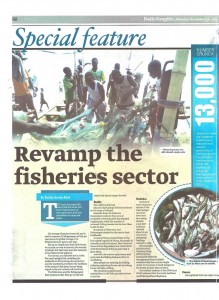 The Daily Graphic, considered the widest-selling newspaper in Ghana, ran a center spread special feature Nov. 30 on the crisis in the fisheries sector in Ghana. The story and photos, titled “Revamp the Fisheries Sector,” discussed CRC’s role in addressing the problem through the work of the USAID-funded Sustainable Fisheries Management Project (SFMP).
The Daily Graphic, considered the widest-selling newspaper in Ghana, ran a center spread special feature Nov. 30 on the crisis in the fisheries sector in Ghana. The story and photos, titled “Revamp the Fisheries Sector,” discussed CRC’s role in addressing the problem through the work of the USAID-funded Sustainable Fisheries Management Project (SFMP).
The article discussed key activities of SFMP and mentioned Brian Crawford, CRC’s in-country chief of party for the project.
J-Term Class in Senegal
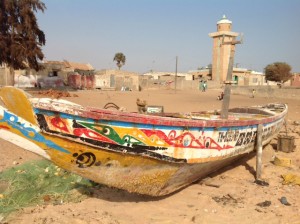
A URI Winter J-Term course on Sustainability and Climate Agility will be offered in Senegal, West Africa, Jan. 4-18, 2016.
J-Term courses take place during the winter break between semesters and include several study-abroad options. This program will allow students to explore mangrove estuaries, local townships and urban environments in Senegal on the coast of West Africa to better understand sustainable resource management and mitigation of habitat loss, ecosystem-based fisheries management and the challenges that climate change brings to those issues. CRC has several years of experience working in sustainable fisheries and climate change in Senegal through the USAID-funded Collaborative Management for a Sustainable Fisheries Future (COMFISH) project.
Click here to learn more or enroll in this one-of-a-kind learning experience in West Africa.
Ghana Fisheries Course Stresses Inclusion, Building Cohesion
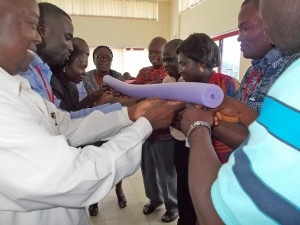
If a problem is systemic, then addressing it at identified critical points might be the best way to solve it. The URI Coastal Resources Center (CRC)-led Leadership for Fisheries Management program that recently concluded in Ghana, Africa, took that approach, both in and out of the classroom.
CRC, based at the Graduate School of Oceanography, and the College of the Environment and Life Sciences’ Fisheries Center have come together for years to offer such programs on campus and across the globe. This 10-day Ghana course differed a bit in that it brought together two dozen participants from all parts of the Ghanaian fisheries system (and one from Malawi)—from chief fishermen and women processors in villages, to boat owners, to government officials and representatives from non-governmental organizations.
“One of the strengths was that you had people from throughout the system, and you had everyone talking to each other, which is unique for Ghana,” said Glenn Ricci, a coastal manager at CRC and co-leader of the course along with Kathy Castro of the Fisheries Center.
In addition, the course was offered early in the tenure of the CRC-led USAID/Ghana Sustainable Fisheries Management Project (SFMP), which aims to help Ghana rebuild its collapsing small pelagic fishery, providing a broad window of opportunity for learning and implementation. “The primary difficulty is that even though there are strict rules and regulations in place, very few people are complying with them,” Castro said. SFMP and the fisheries leadership courses strive to change that.
The program, hosted at the University of Cape Coast (UCC), included faculty participants with the aim of building their capacity to offer these courses in the future. Next year, SFMP and UCC will co-facilitate and jointly implement the course.
Unlike some of the fisheries management programs CRC offers, which focus more on the technical aspects of fisheries, this course focused more on building leadership skills and empowering participants to understand that they can influence behavior throughout the fisheries system. The program covered how to influence people, how to understand your role in influencing positive behavior change, how to address conflict through finding common interest and understanding with those you might think you share no common ground.
With SFMP now underway, “there will be a great deal of follow on. We will offer programs like this twice a year. We want to create a group of 100 leaders throughout the fisheries system, strengthen their knowledge and ability to influence discussions from the local to the regional and national level. The courses are just a small part of a larger capacity development strategy to foster learning outside of the classroom,” Ricci said.
Ghana’s small pelagic fishery is crucial to its food security, and with SFMP, the timing is perfect for supporting a cadre of local people who can lead the country toward some tough decisions on how to reduce fishing effort in hopes of rebuilding fish stocks. For a renewed strategy to work, all stakeholders throughout the fishery system have to believe in the actions, despite low levels of trust and a history of ineffective management. Improved relations across the fishery system can make a new small pelagics fishery management plan more meaningful going forward.
In addition to classroom instruction in leadership, goalsetting, developing co-management plans and creating action plans, the group did a preliminary community analysis and then ran a stakeholder meeting in the fishing village of Elmina, Castro explained. This gave them hands-on experience to understand how local people see the way forward, what their visions are and to learn to listen more and talk less: a skill critical to being a successful leader. “It was very good for them to talk and listen to each other,” she said.
One message that emerged is that women fish processors have a good deal of power in the fisheries system. Many own boats and decide what fish to buy. “If organized, they could really influence the system,” Ricci said, much as the women in Cayar, Senegal, have as part of the CRC-led USAID/COMFISH project.
SFMP is there to guide and support Ghanaians’ progress toward a sustainable fishery, “but really it’s for them to do,” Ricci said. “The goal is to develop a viable network of informed, motivated people that understand the fisheries system and the power of vision driven changes.”
Throughout the tenure of SFMP, which concludes in 2019, CRC will return to Ghana with additional programs that build individual capacity that then strengthens the organization and ultimately the institutions and networks made up of those individuals and groups.
“It’s the follow-up, learning by doing method. It’s the CRC way,” Ricci said.
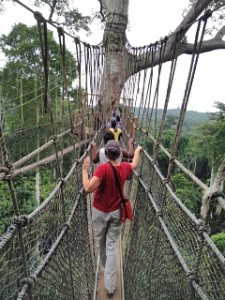
Software, Statistics and Sustainability
Daven Amin, a grad student studying statistics and computer science in the College of Arts and Sciences, spent two months in Ghana helping to create a survey of fishermen that will be administered by local CRC staff to measure the progress and success of the CRC-led Sustainable Fisheries Management Project. Daven lived with a local co-worker, spent long days in an office creating the survey, and was challenged in selecting a random sample of people to survey because there are no street addresses there. Electricity is also unreliable, so creating and training staff to administer the electronic survey using tablets was also a challenge. Because it’s a paperless survey, the data immediately go to a cloud where it can be analyzed in real time.
Learn how the project gave him a chance to put his skills to use in a unique place.
Research Magazine Features CRC Ghana Project
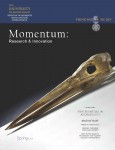 The latest issue of “Momentum: Research & Innovation,” the magazine published by URI’s Division of Research and Economic Development prominently features an article on CRC’s sustainable fisheries management project in Ghana, led by CRC’s Brian Crawford, who served as CRC’s interim director and international programs director. Crawford moved to Accra, Ghana, with his wife, Chat, in January to lead the five-year, USAID-funded project.
The latest issue of “Momentum: Research & Innovation,” the magazine published by URI’s Division of Research and Economic Development prominently features an article on CRC’s sustainable fisheries management project in Ghana, led by CRC’s Brian Crawford, who served as CRC’s interim director and international programs director. Crawford moved to Accra, Ghana, with his wife, Chat, in January to lead the five-year, USAID-funded project.
A High-Profile Launch for Ghana Fisheries Project
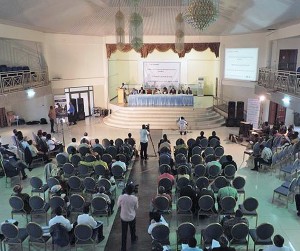
Acting USAID/Ghana mission director, Ghana’s fisheries minister, local chiefs, regional ministers, members of Parliament, stakeholders and representatives of fishing communities in the Central and Western Regions of Ghana gathered April 28 for the official launch of the USAID/Ghana Sustainable Fisheries Management Project (SFMP)
The event in Takoradi, Ghana, officially kicked off the five-year, $24 million USAID-funded project. CRC leads a consortium of local and international partners in the project implementation. SFMP Chief of Party Brian Crawford received much praise from acting USAID Mission Director Andrew Kara, the honorable Minister Sherry Ayittey of Ghana’s Ministry of Fisheries and Aquaculture Development and other officials and fisheries sector stakeholders in attendance.
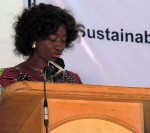

CRC Director Anton Post was in attendance and introduced URI President David M. Dooley, who stressed the SFMP project’s importance in a videotaped address. The project team also published an issue brief on the crisis facing Ghana’s small pelagic fishery as part of launch activities.
The event featured performances by Ghanaian dancers and drummers and a skit highlighting the role women can play in preventing fishermen from catching undersized, juvenile fish.

Judged from the buzz in media outlets that ensued, the launch event was a tremendous success. Post said that the event created a strong sense of excitement and commitment among all participants.
Some of the local coverage generated:
http://www.ghanaweb.com/GhanaHomePage/NewsArchive/artikel.php?ID=356409&channel=A3
http://www.modernghana.com/news/614378/1/fisheries-management-project-launched.html
https://www.facebook.com/FoNGhana
https://www.facebook.com/FoNGhana/photos/pb.640547259353402.-2207520000.1430417328./863100237098102/?type=1&theater
Partners Emphasize Cooperation, Collaboration at Ghana SFMP Meeting
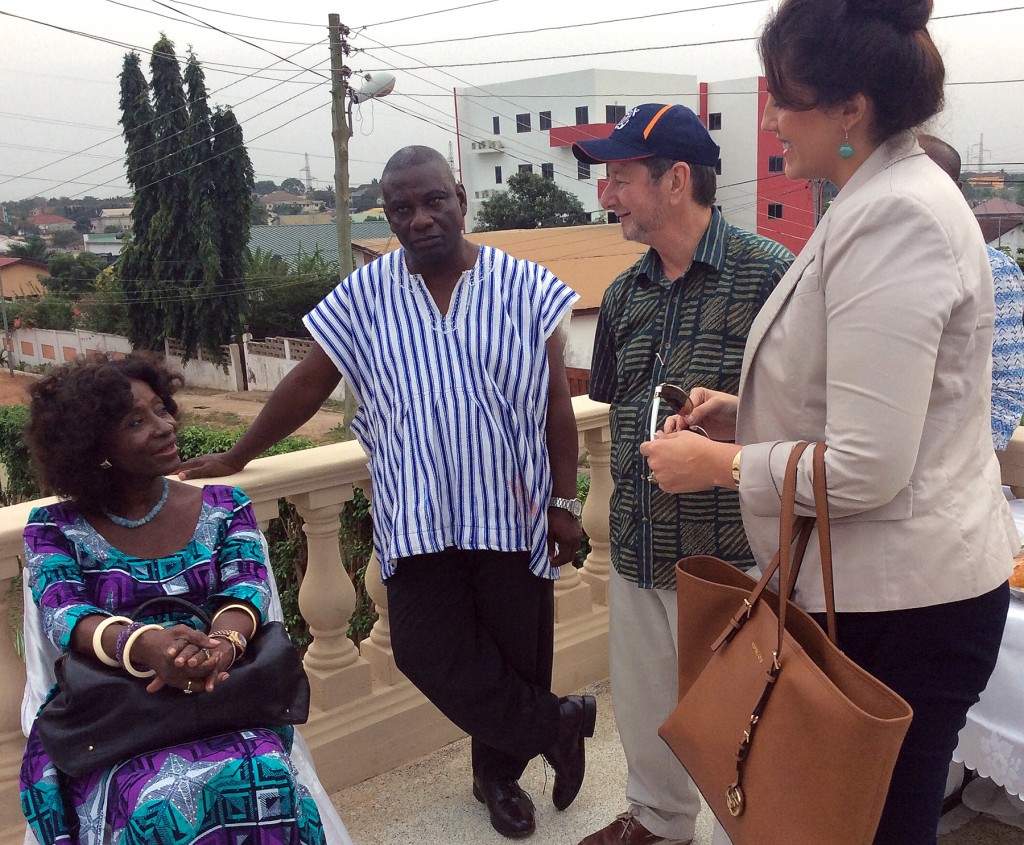
More than 40 members from the nine local and international partners implementing the USAID/Ghana Sustainable Fisheries Management Project (SFMP) were joined by USAID and Government of Ghana officials at a retreat in Accra, Ghana, Feb. 25 and 26 that combined fruitful discussions, technical presentations, role-playing and sharing of knowledge and expertise.
Ghana’s Minister of Fisheries and Aquaculture Development, Hanny-Sherry Ayitey, and other ministry officials attended a reception at SFMP’s Accra office following the retreat.
CRC is the lead implementer of the project, and the center’s Brian Crawford and Najih Lazar have relocated to Ghana as SFMP’s chief of party and national fisheries manager, respectively.
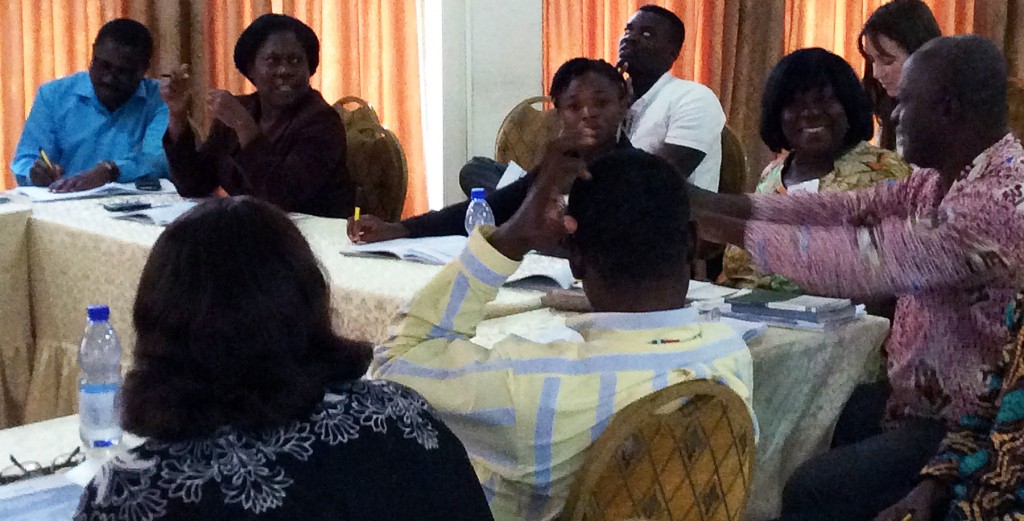
Objectives of the meetings were to understand better the marine fisheries context and other donor projects supporting Ghana’s sustainable fisheries efforts, to foster teamwork and activity execution and to understand policies, procedures and requirements of the five-year project. SFMP’s main objective is to rebuild Ghana’s collapsing fisheries stocks, with an initial focus on small pelagics—a key food and protein source throughout the region that is critical to Ghana’s food security. In this way, SFMP contributes to USAID/Feed the Future, the U.S. government’s global hunger and food security initiative.
Officials and participants acknowledged that the team has a demanding and large task before it, with difficult decisions and measures ahead. Officials and project leaders stressed that coordination and cooperation are integral to project success, particularly given the number of partners and activities. Key SFMP activities include improving legal conditions for implementing fisheries co-management, use rights and effort-reduction strategies; enhancing information systems and science-based decision-making and increasing public support and political will needed to make hard choices and change behavior. These components feed into applied management initiatives for targeted fisheries ecosystems.
Rhode Island-based CRC staff Donald Robadue, SFMP project manager; Cindy Moreau, CRC business manager; and Carol McCarthy, CRC communications specialist, traveled to Ghana to participate in the retreat. Partners embraced the spirit of collaboration solidified in the meetings and immediately got to work the next day in more informal, activity-focused meetings at SFMP’s Accra office.
University Partner in Ghana Awarded USAID Capacity Development Grant
The United States Agency for International Development (USAID), a frequent funding partner of CRC, officially committed $5.5 million dollars to the University of Cape Coast (UCC) in Ghana for a five-year program in fisheries and coastal management capacity development. Last month two UCC officials visited CRC and URI to explore how best to implement such a program. The visit was arranged as part of the CRC-led, USAID-funded Sustainable Fisheries Management Project (SFMP) in Ghana. One of the objectives of that five-year, $24-million project is to strengthen UCC’s fisheries and coastal management department by hosting at URI up to 10 masters and doctoral students from UCC, sponsoring other student and faculty exchanges, conducting joint research and holding a fisheries leadership course in Ghana that draws on URI’s experiences.
This new USAID award will fund the creation of a coastal management center at UCC. You can read the the local Ghanaian media reports here:
http://vibeghana.com/2015/02/01/ucc-usaid-to-improve-fisheries-coastal-management-in-ghana/
http://news.peacefmonline.com/pages/social/201502/230872.php


